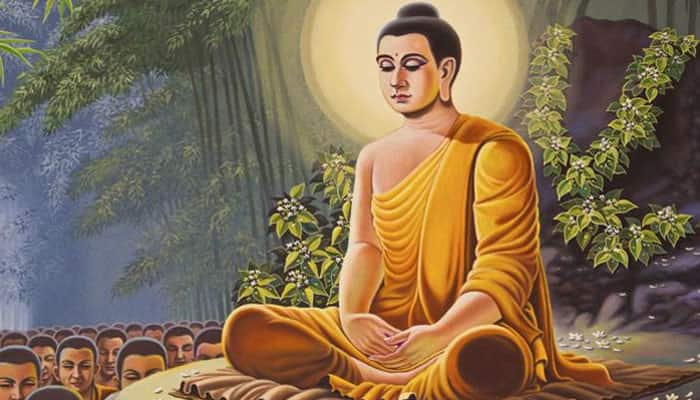Siddhartha Gautama, also known as the Buddha, was a wandering monk and spiritual guide who created Buddhism while residing in South Asia in the sixth or fifth century BCE. Several people had inquiries regarding the Buddha and the story of the young child who became a saint.
We’ll examine the Buddha’s life path today! The full account of How Siddhartha became Gautama Buddha – The Complete Story
Buddha’s life story
Buddha, which is a term for an enlightened person, was not his given name when he was a boy. He identified by Gautam Siddhartha in real life. According to Buddhist legend, he was born in Lumbini, in what is now Nepal, to Shakya clan royalty. When Siddarth was born, a great sage actually gave him an augury, predicting that he would grow up to be either a decent person or a saint. When Siddhartha’s father heard of it, he was unhappy since no parent wants their child to grow up to be a saint. His father then made the decision to shield his son from suffering. The primary motivation for becoming a saint is to escape suffering and society’s issues. His father believed that if someone is constantly content and free from the misery of society, there is no need for them to become saints. Yet, I do believe that at times if someone is unhappy in their personal life, they may become interested in becoming a Yogi (saint).
The famous Socrates adage “By all means marry; if you get a good wife, you’ll become happy; if you get a bad one, you’ll become a philosopher” is included to support his viewpoint.
Now, continue to the storyline. Siddharth’s father made an effort to grant all of his wishes and ensure that he was happy at all times throughout his childhood; yet, this may have been the largest error he made because people tire of happiness more quickly than they weary of suffering. When Gautama turned 19, his father had him marry the most stunning woman in the community. Because he was raised in a private castle with access to every luxury and amenity, he was not socially conscious of everything. One day, Gautam made the decision to stroll through the town to check what was going on. He went off in his chariot secretly.
On his way into town, he came upon an elderly man who was unable to walk properly. His father never wanted him to go through anything like that, so it was the first time in his entire life that he saw an elderly person. then he inquired of the charioteer regarding him. What’s the big issue here, he said? Every old person strolls around like this.
He re-asked. Everybody becomes old eventually; it’s nature’s law. As a result, he understood that although he was youthful at the time, he would eventually age into an elderly person. Everyone must experience the same age, the charioteer said.
After seeing a man sobbing on the side of the road, Siddharth asked, “Who is he? “, as he knew that one day he would also walk in similar manner. why he is yelling
He is unwell, the charioteer retorted. This body occasionally gets sick, and practically everyone experiences this.
“Could this also happen to me?” Gautam re-asked.
Yes! Anyone can experience it at any time. Charioteer answered.
Soon Gautam began identifying with the man. These two images alarmed him because he worried that it might also happen to him. He then noticed a funeral procession passing by the opposite side of the road as they continued to proceed forward.
He questioned, “What happened to this man?” after observing a corpse being carried by four men on their shoulders.
“This man is dead,” the charioteer said.
What does “death” mean, Siddharth?
“No one can avoid death,” said the charioteer, “everyone has to die one day.”
He began to consider the causes of people’s misery as he made his way back to the palace. Everything in life is a waste, and nothing lasts forever. One day, everything that is material will disappear. Why do the large palace, family, and friends even exist? He engaged in lengthy thought. He made the decision to become a yogi to follow the yoga philosophy and reach an advanced spiritual state when his son Rahul was 1.5 years old.
Also read : https://www.yourarticlelibrary.com/buddhism/top-12-causes-for-the-decline-of-buddhism-in-india/47589
He was given the name Buddha a few centuries after his passing, which means “Awakened One” or “Enlightened One.” His teachings were collected by the Buddhist community into the sutta pitaka, a collection of teachings based on his talks, and the Vinaya, which served as his norms for monastic behavior. The Tripitaka is the name of Buddhism’s holy book (called Tipitaka in Pali). In honor of the language in which it was initially written, it is also known as the Pali Canon. The Pali language of ancient India is quite similar to the one that the Buddha himself spoke.





One thought on “How Siddhartha became Gautama Buddha – The Complete Story”